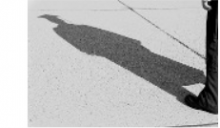 PhD defense of Julien Picard on 12/14/20
PhD defense of Julien Picard on 12/14/20


PhD Defense of Julien Picard from TIMC ThEMAS on december, the 14th at 4:30 pm:
« Risk Management and Non-Technical Skills in Healthcare : contribution of Simulation. »
Place: Salle Bibliothèque du Pôle Anesthésie-Réanimation (9ème étage, côté Belledonne - Unité D), CHU Grenoble Alpes, Site Nord, Boulevard de la Chantourne, 38700 La Tronche
Thesis supervision:
- Mr Pierre ALBALADEJO, Professeur des Universités - Professeur Hospitalier, Université Grenoble Alpes, laboratoire TIMC, Director
Jury:
- Mrs Corinne LEJUS-BOURDEAU, Professeur des Universités - Praticien Hospitalier, Université de Nantes, Reporter
- Mr Philippe CUVILLON, Professeur des Universités - Praticien Hospitalier, Université de Nimes, Reporter
- Mr Jean-Luc BOSSON, Professeur des Universités - Praticien Hospitalier, Université Grenoble Alpes, Examiner
- Mr Vincent PIRIOU, Professeur des Universités - Praticien Hospitalier, Université Lyon 1, Examiner
- Mr Olivier PALOMBI, Professeur des Universités - Praticien Hospitalier, Université Grenoble Alpes, Examiner
 Key words:
Key words:
Risk Management, Non-Technical Skills, Simulation in Healthcare, Assessment, Pedagogy, Critical Care
 Abstract:
Abstract:
The care process is a complex event involving the collaboration of several specialized professionals in a high-tech environment. In this context, the teaching and acquisition of increasingly specialized technical skills has long been the main driving force behind the selection of health professionals. However, improving the quality and safety of care can only be based on the development of a genuine safety culture allowing the implementation of a risk management strategy. Several approaches will make it possible to structure this risk management: secure the learning of potentially dangerous invasive procedures for patients, acquire and assess organizational skills, promote communication and appropriate cooperation between the various healthcare professionals, adopt rationalization tools and standardization of practices.
The development of new educational tools such as Simulation makes it possible to improve the quality of patient care by integrating non-technical and organizational skills into the training of health professionals through a reflective and experiential approach. Simulation-based teaching thus aims to teach, evaluate and improve technical procedure, diagnostic or therapeutic processes, more or less complex clinical situations or decision-making. It makes it possible to identify and recognize risky situations through a systemic analysis of the error. Soft skills can be organized into four broad categories: task management (planning and prioritizing, providing and maintaining standards and identifying available resources), teamworking (coordinating activities, exchanging information, leadership), situational awareness and decision making. Along with this classification of non-technical skills, we looked at the impact of simulation-based pedagogy according to the Kirkpatrick classification (reactions, learning, behavior, results), the final target being to improve quality and safety in patient care.
We first built and validated simulation-based models for teaching and assessing technical and non-technical skills in healthcare. The “Tricked cart” model was developed for the purpose of teaching and evaluating task management by improving the recognition of sources of medication errors. The OTPA (Obstetric Team Performance Assessment) grid has been developed to provide a tool for assessing skills in critical situations.
We then focused on measuring the impact of a larger-scale, inter-professional and multi-disciplinary educational program enabling the implementation of teamworking and in particular communication.
Finally, we have developed a tool for measuring and analyzing situational awareness and decision making by combining a standardized simulated scenario with the use of an eye-tracking device. We analyzed the signals from an oculometric recording in order to identify the factors involved in situational awareness and decision making.
More than a teaching technique, simulation is a methodological tool that allows teaching and evaluating technical and non-technical skills in healthcare and thus contribute to improving the quality and safety of care in a risk analysis and management process.
